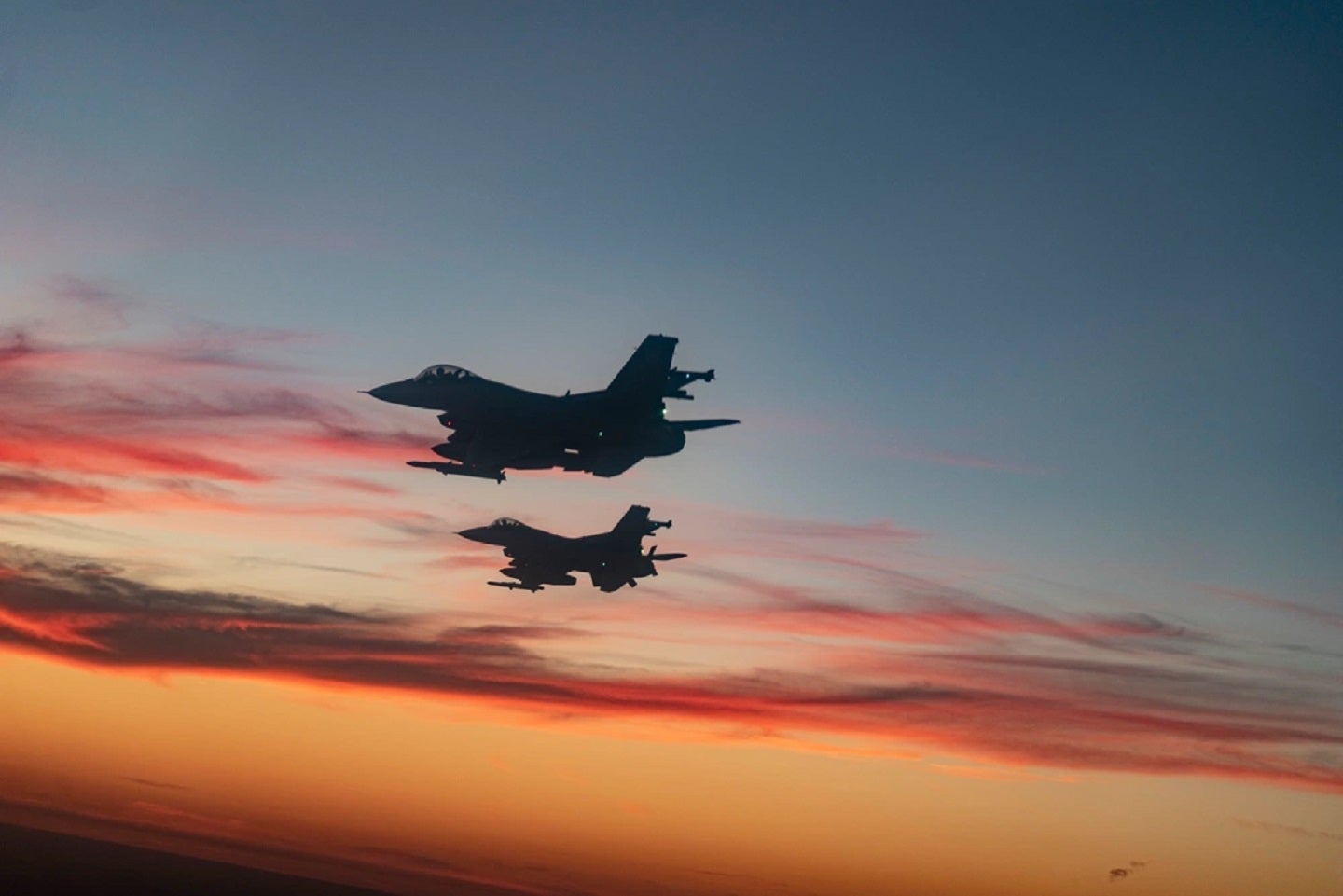
With age comes reliance – at least that is what the old American prime, Lockheed Martin, is telling us with its new F-16 Block 70 combat aircraft.
New production of the F-16s leverage structural and capability upgrades that “ensure the international F-16 fleet can operate to 2060 and beyond” according to the original equipment manufacturer.
The Kingdom of Bahrain will be the first country to procure the latest variant, as Bahraini, American, and Lockheed Martin officials celebrated the deal in Greenville, South Carolina on 10 March.
Bahrain has a unique history with the F-16: it was the first F-16 operator in the Gulf Cooperation Council beginning in the early 1990s and is now receiving the first F-16 Block 70.
GlobalData tells us in their report on the Bahrain Defence Market Data, 2022-32 that the Royal Bahraini Airforce currently has 16 F-16C Block 40 and 4 F-16D Block 40 legacy combat aircraft. These aircraft had been procured between the 1990s-2000. The new variant will provide Bahrain’s fourth-generation aircraft with fifth-generation capabilities that will keep the air force up to date.
OJ Sanchez, Lockheed Martin vice president, Integrated Fighter Group, which includes the F-16 programme, said: “With the Block 70 iteration, we are transforming fourth generation for the next generation for the Royal Bahraini Air Force and other partners and allies around the world.”
This F-16 Block 70 jet is the first of 16 jets for Bahrain. The new variant took its first flight on 24 January 2023. From here, it will begin additional flight tests at Edwards Airforce Base before arriving in Bahrain in 2024.
Old dog new tricks
Northrop Grumman’s APG-83 AESA radar provides the Block 70 with fifth generation fighter radar capabilities by leveraging hardware and software commonality with F-22 and F-35 AESA radars.
AESA delivers greater situational awareness, flexibility and quicker all-weather targeting and provides pilots with target area detail and digital map displays that can be tailored with slew and zoom features.
The new variant is already gaining popularity. Six countries have selected Block 70 aircraft. In addition to the current official backlog of 127 jets to-date to be built in Greenville, Jordan has signed a Letter of Offer and Acceptance (LOA) for 12 jets and Lockheed Martin has received a contract to begin its long-lead activities.
Bulgaria has similarly signed an LOA for an additional eight jets for its fleet. Once these are finalised, the backlog will increase to 147.




